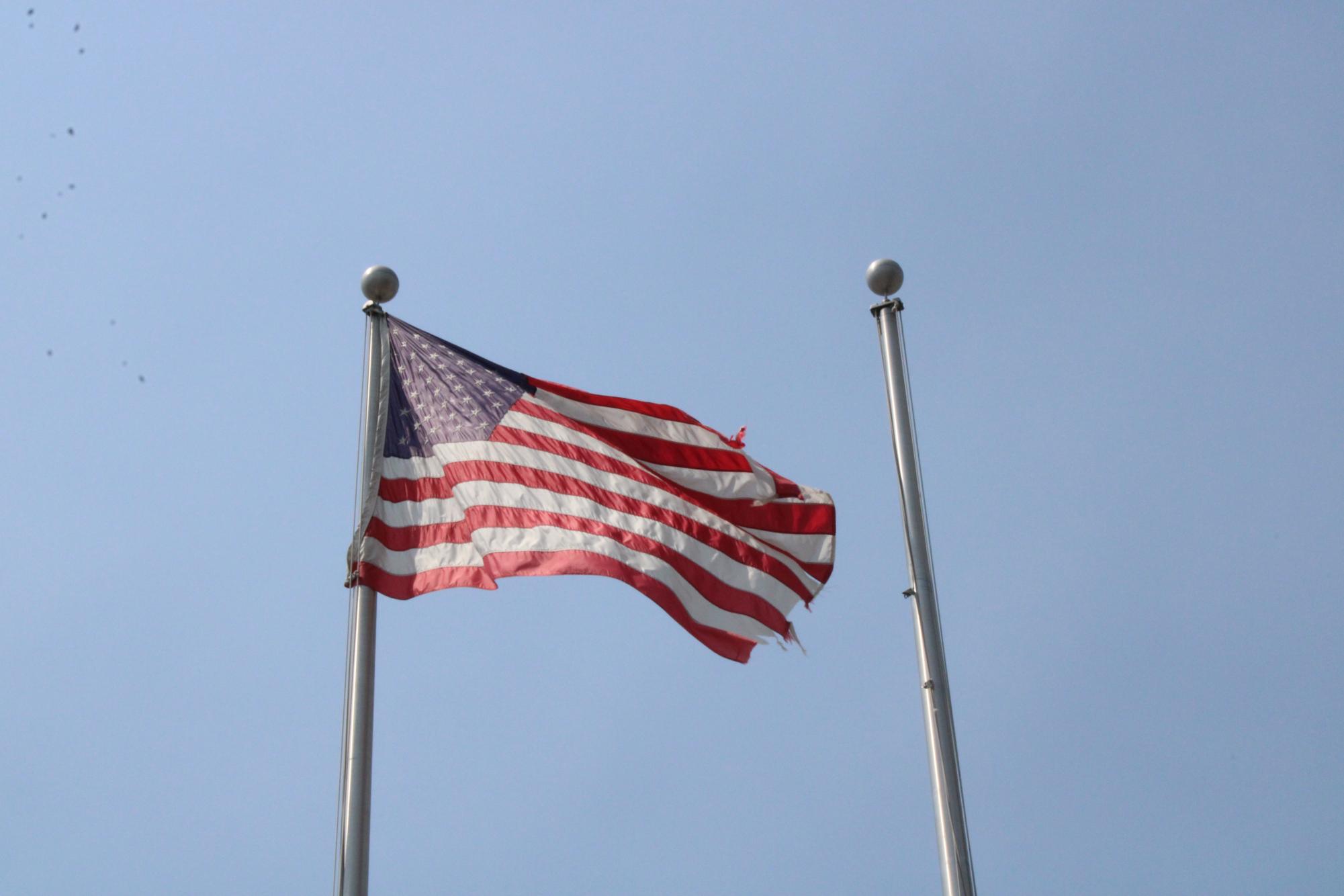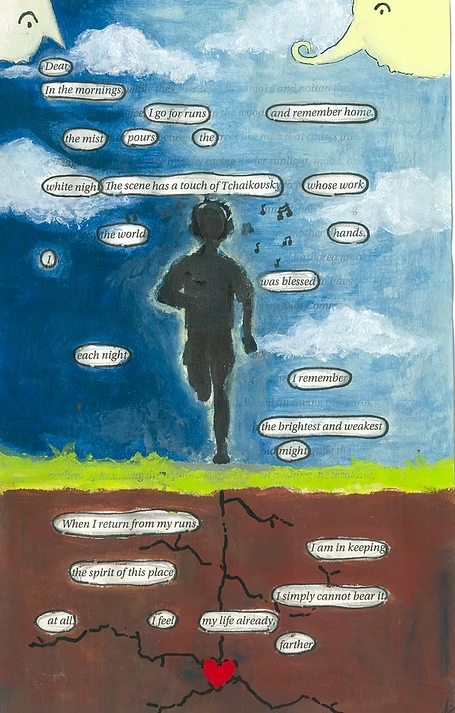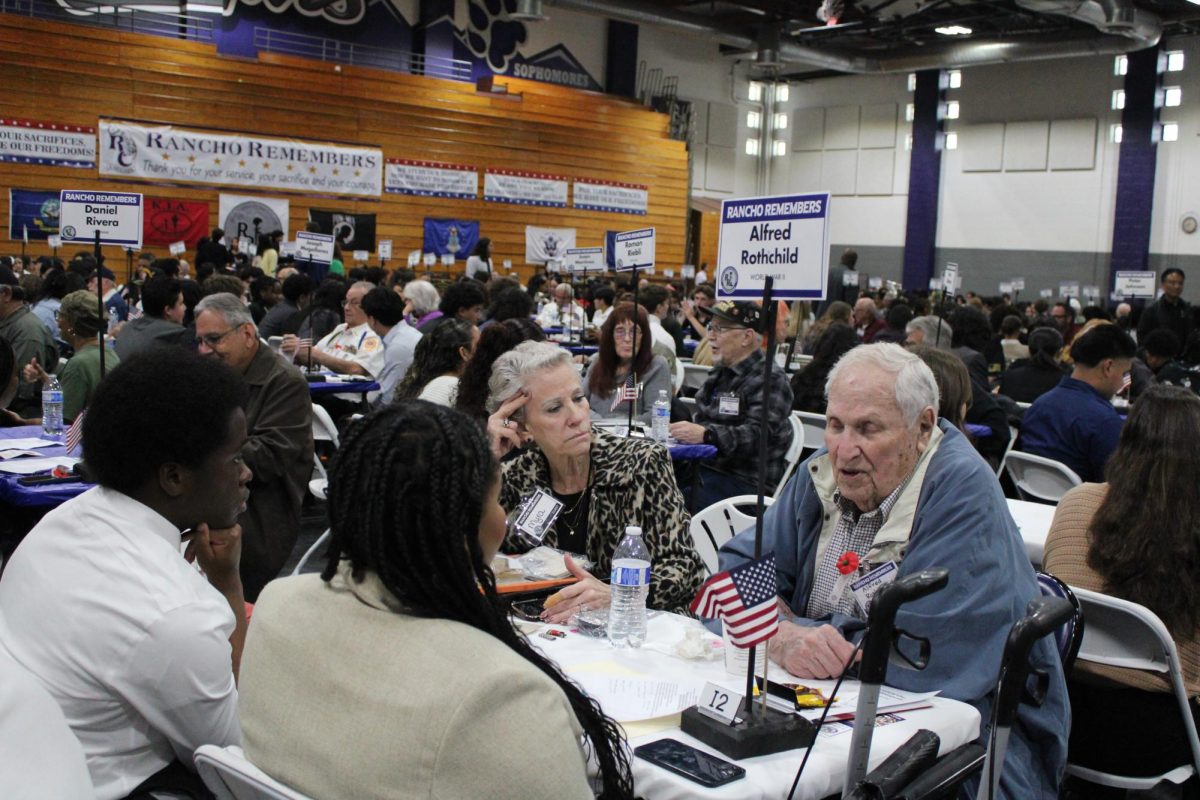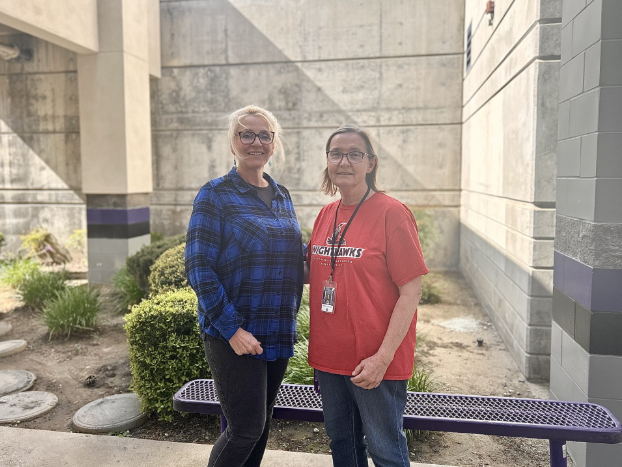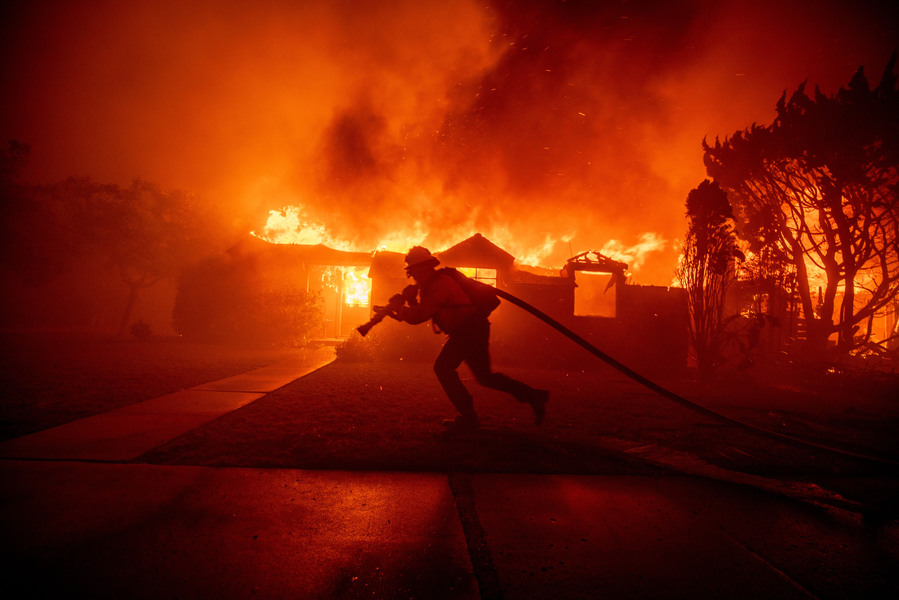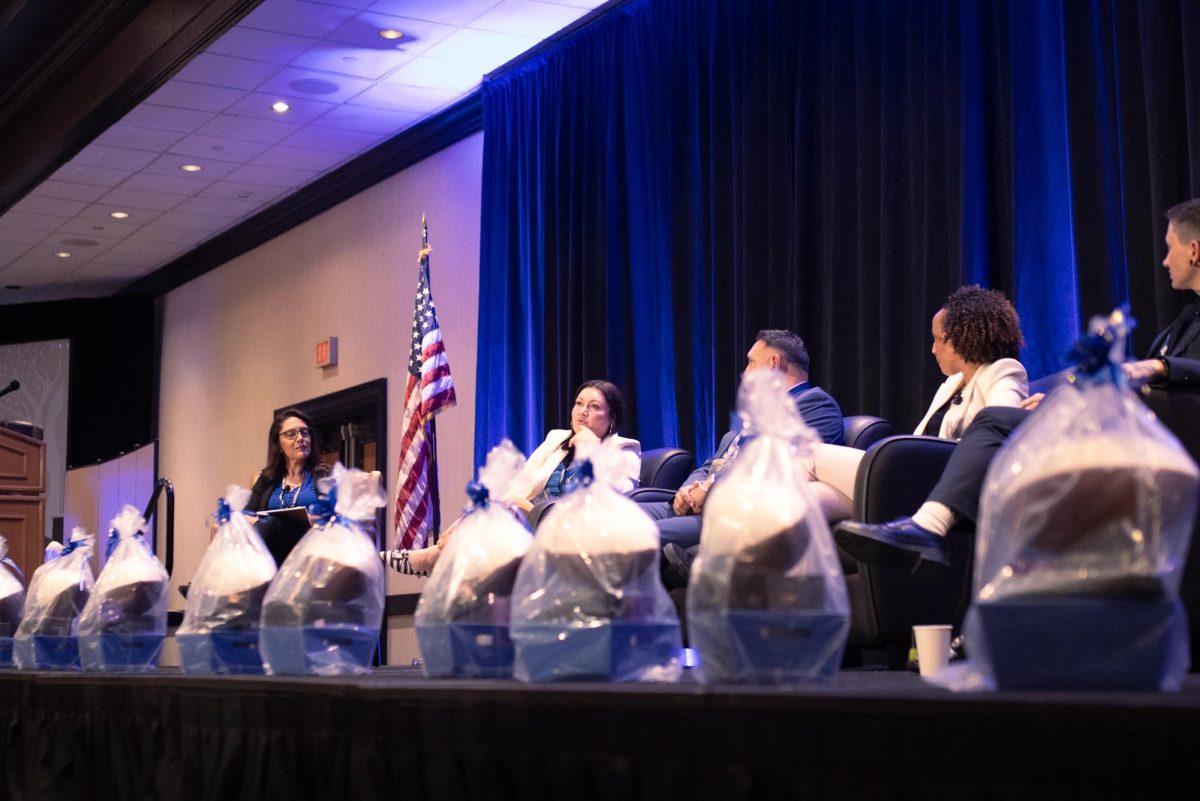Should high school students be able to vote? After hearing this question, time, and time again, one can imagine walking into that voting booth and making that vital decision. While the topic of voting has been debated extensively, for those about to turn 18, the moment of exercising this right is filled with a unique blend of anticipation and significance; new voices are being added every day to the democratic process that helped found our United States.
According to the Ronald Reagan Library, before changing on July 1, 1971, the voting age in the U.S. was unrestricted and determined by individual states. The Vietnam War lowered the drafting age to 18, and the growth of young voices and activists during the 1960s pushed forward national change.
In the Supreme Court case, Oregon v. Mitchell, Congress was given the power to set a federal voting age, which they did with the 26th Amendment.
The 26th Amendment states, “The right of citizens of the United States, who are eighteen years of age or older, to vote shall not be denied or abridged by the United States or by any State on account of age.”
More recently, in November 2022, according to the United States Census Bureau, Pacific Western American citizens ages 18 to 24, who reported voting, made up 2.8% of their region’s population.
But what do these numbers mean? How important are these young voters? And how has the amount of young voters changed?
The Growing Youth Vote
When asked about the change in the number of young voters, AP government and sociology teacher Mr. James Longo said the number of young people voting has increased.
“It’s increased because–I’m hoping awareness in high school classes that teachers start to press the importance of our government not pressing the importance of a political party on over the other, it’s not about that, it’s how government affects our day to day lives,” Longo said. “The more you can see how government impacts your lives [is the main cause here], because whether it is up to your parents or your teachers to do, I think you’re going to see more and more trending of more and more students participating.”
Corresponding with Longo’s statement, the Center for Information & Research on Civic Learning and Engagement reports that 50% of young people, aged 18-29, voted in the 2020 presidential election, a substantial increase from 2016 with 39%. With an 11% increase between the two elections, it begs the question of how the younger generation feels about voting.
Senior Jackson Fuentes, Executive Secretary of ASB, said, “I get to decide on how the next four years will go for my country and I think that’s really important. [The thing is however], you see a lot of different things on social media about who they vote for and what they do and I feel like that kind of blindsides you, especially with the news… Like you’re not seeing what you’re getting.”
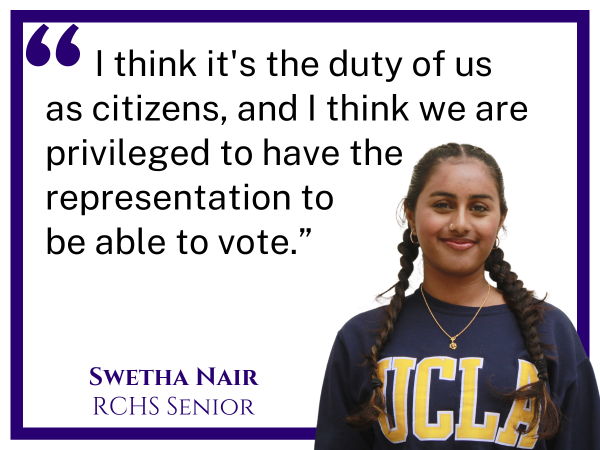 Another student, senior Swetha Nair said that voting is a civil duty.
Another student, senior Swetha Nair said that voting is a civil duty.
“I think it’s the duty of us as citizens, and I think we are privileged to have the representation to be able to vote. [But because I’m turning 18 in December and I’m barely missing the cut-off to vote,] I like being involved and knowing what’s going on in the political world; so I was bummed out because it was just a month off and I could have voted,” Nair said.
During both interviews, the students agreed that voting is a crucial opportunity, especially in the upcoming presidential election. Although, in agreement on the importance of voting, they still gave precautions.
“You just have to be informed and do your research before you vote, I feel like that’s important and I don’t think anybody should be going into an election blindly, choosing somebody based on what they see at face value,” Nair said. “Social media has a great influence on who people choose in elections… it is about doing your own research and not going off of what other people have posted and what other people believe.”
Being an Educated Voter
In a world of misinformation, topics can be easily twisted or misinterpreted to portray different ideas and philosophies. Social media, particularly with younger voters, is a big player in the spread of information. With this in mind, many warn that it’s not just about voting, but it’s about voting in an educated manner.
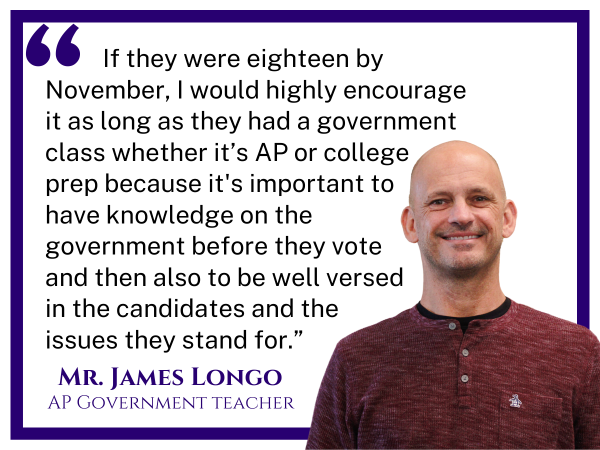 “If they were eighteen by November, I would highly encourage it as long as they had a government class whether it’s AP or college prep because it’s important to have knowledge on the government before they vote and then also to be well versed in the candidates and the issues they stand for,” Longo said.
“If they were eighteen by November, I would highly encourage it as long as they had a government class whether it’s AP or college prep because it’s important to have knowledge on the government before they vote and then also to be well versed in the candidates and the issues they stand for,” Longo said.
It is up to the younger generation to decide how they want to live the rest of their lives by choosing who will represent the country. In future elections, they have the power to choose how they vote and the effect they will have. The right to vote comes with responsibility and self-commitment to the values that shape an American citizen.
So as this debate over age unfolds, various jurisdictions worldwide have approached the issue of student voting differently. Some countries have lowered the voting age to 16 for local or national elections, while others maintain a higher minimum age. For now, citizens at least 18 years old in the United States of America have the right to vote.
The presidential election takes place on November 5, 2024, from 7:00 a.m. to 8:00 p.m., while voter registration must be complete by October 21, 2024. or “conditionally” at your county elections office after the 15-day voter registration deadline.
To register to vote, visit the San Bernardino County Website here.




